Google Reader in the Wild
So we (Google) have launched a service called Reader as an experiment on Google Labs. Reader has been the fascination of a group of developers who were interested in building feed readers and I'm just happy to have been involved so please bear with the occasional confessional-letter cadence since "I never thought these letters were real until...'" can sound silly to anyone who isn't actually the surprised person in question.
Screenshots of Google Reader. You probably know the drill, click to enlarge.
The main window: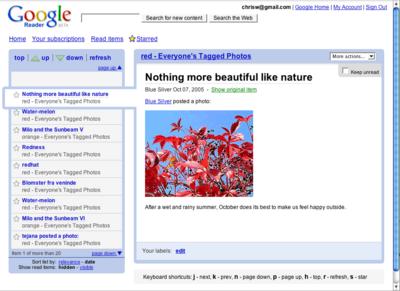
Your starred items: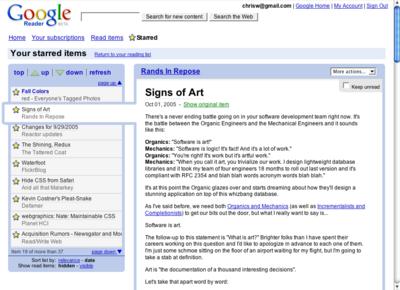
A podcast showing the audio player: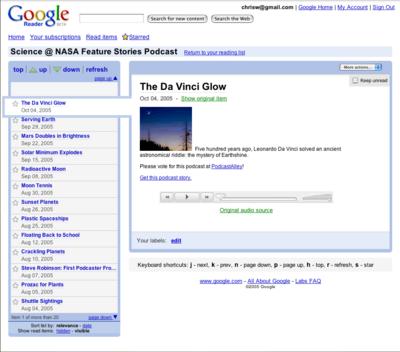
With the drawer open and editing a feed: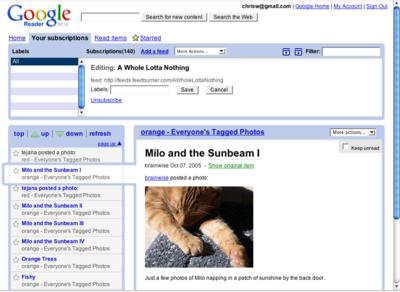
With the drawer open, browsing subscriptions and labels.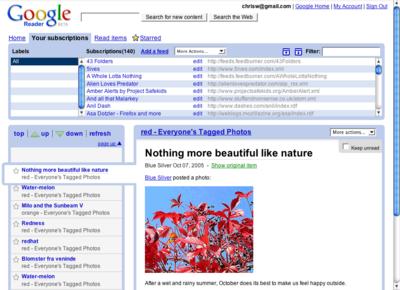
The gist? It's clear that there's value in keeping up with web content by subscribing to feeds. But the promise of this technology seems greater than, say, the attention paid to its admittedly excellent ability to manage news updates and it's been clear that developers who have been working with RSS, Atom, and microformats have understood that syndication can perhaps be compared favorably, and superficially, to bricks-and-mortar efforts like bridge, dam or canal
building. (For additional metaphoric conflation I'd been considering mentioning the Yangtse River's Three Gorges Dam project to highlight engineering designs for managing floods. Aren't you glad I didn't?)
The web is always been poised to grow. (Duh.) And as a second order effect the amount of information available through feeds seems likely to overwhelm the casual onlooker despite its being potentially useful for them. A (currently) smallish cross-vendor community has been adept at making tools for managing this incredible volume of data available for everyone for years and at Google we're interested in helping out with the resources available to us.
More later. There's a little bit of digital soup being thrown at the newborn. So many people... so many people at the same time...

0 comments:
Post a Comment